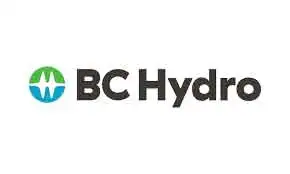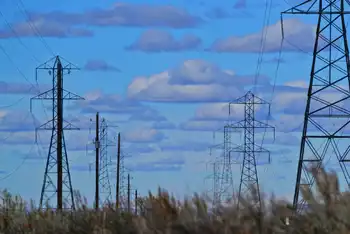Seven Bidders Survive Alberta Power Auction
EDMONTON -- - Seven corporate fighters survived the first two rounds of Alberta's electricity auction to battle another day and bid on 12 "power purchase arrangements" -- units for the 6,414 megawatts of power generated by 10 plants.
"The entire success or failure of (electricity) deregulation depends on this auction," said Al Bryan, an Edmonton lawyer who represents 35 municipalities in regulatory matters.
The next major step -- consumer choice of an electricity provider -- begins Jan. 1, 2001.
"It's going as expected," said Mark Erdman, a spokesperson for Alberta Natural Resource Development, the provincial department responsible for the event.
Bids were placed for the generated power of eight plants: Battle River, Clover Bar, Genesee, Rainbow, Sturgeon, two of three Sundance units and Wabamun. None of the seven competitors bid for Keephills, Rossdale, Sheerness and one Sundance unit.
The partial slate is common in auctions, said Brad Miller of Charles River Associates, a Massachusetts-based company that designed the auction.
The players are simply manoeuvring and testing each other. All seven are still in the game, he added.
The bidders in Alberta's wholesale electricity auction are: Engage Energy Canada, Enmax Energy Corp. of Calgary, Enron Canada Power Corp., Epcor Utilities Inc. of Edmonton, PanCanadian Petroleum Ltd., TransCanada PipeLines Ltd. and UtiliCorp United Inc.
One purpose of the auction is to gather enough money for a "balancing pool" that will pay off the remaining construction costs of the 10 regulated power plants, and have money left over to distribute to consumers.
Estimates of what would be needed to fulfil that goal have varied from $2 billion to $4 billion.
Miller stressed that the early rounds mean little. But the figures to date are a long way from those targets.
The largest bid Wednesday was $57.2 million for the second unit of Sundance, southwest of Edmonton. Sundance A and Battle River each attracted $50 million bids and Wabamun got a $25-million offer. All those figures match minimum amounts set by the province.
Offsetting those numbers are so-called negative bids, under which the successful bidders will be paid to take certain plants and pay down the remaining construction bills.
Genesee, the province's newest plant, is in that category and received a bid of minus-$300 million. Clover Bar is listed at minus-$96 million. Rossdale, an Epcor plant like Genesee and Clover Bar, received no bids.
Howard Sapers, Liberal treasury critic, slammed the provincial government for refusing to define what auction outcome would be deemed a success.
But Miller said the money raised in the auction is only one gauge. "The real key is, do we end up with a more competitive marketplace," with new companies owning a portion of the electricity industry.
Source: Edmonton Journal
Related News

BC announces grid development, job creation
VANCOUVER - BC Hydro is gearing up for a decade of extensive construction to enhance British Columbia's electrical system, supporting a burgeoning clean economy and community growth while generating new employment opportunities.
Premier David Eby emphasized the necessity of expanding the electrical system for industrial growth, residential needs, and future advancements. He highlighted the role of clean, affordable energy in reducing pollution, securing well-paying jobs, and fostering economic growth.
At the B.C. Natural Resources Forum in Prince George, Premier Eby unveiled a $36-billion investment plan for infrastructure projects in communities and regions to provide clean, affordable electricity for future generations.
The Power Pathway:…




